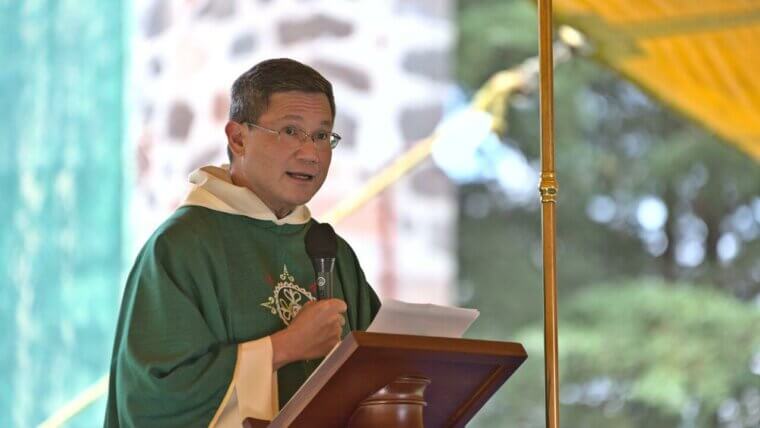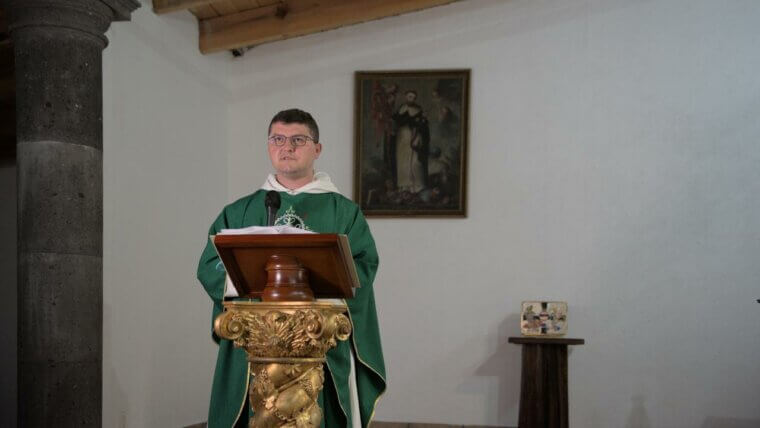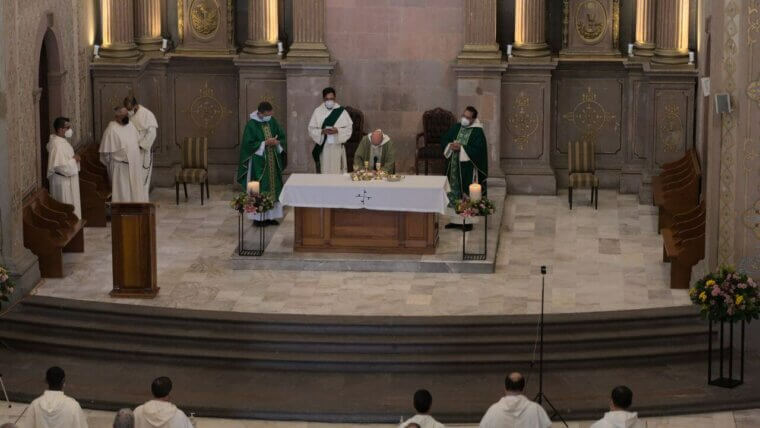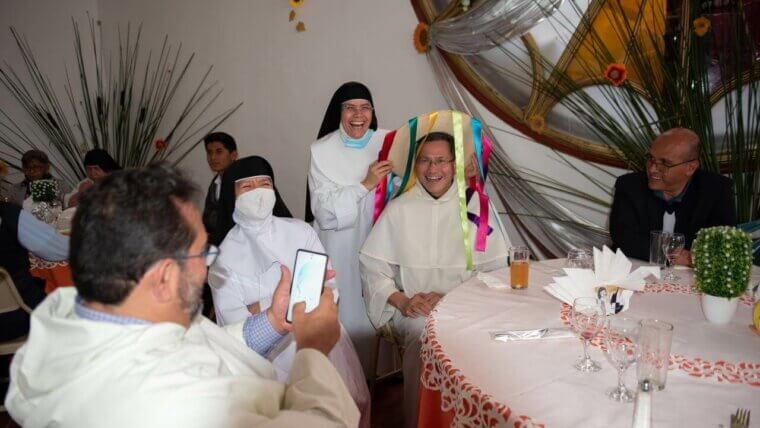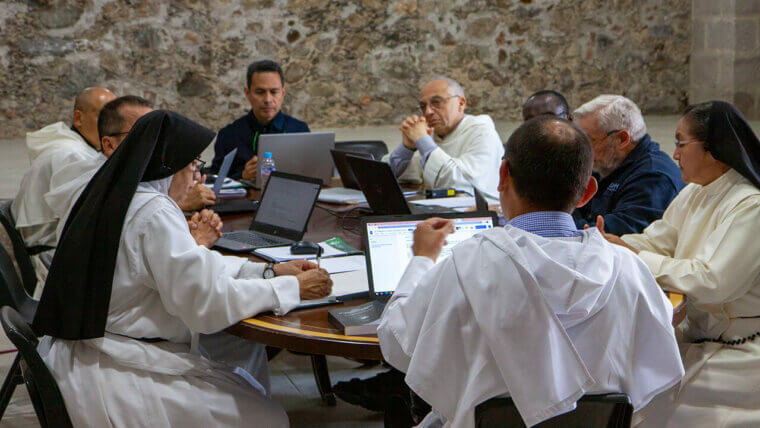Homily of July 30th, 2022
First Profession
We gather around the table of the Eucharist to give thanks to the Lord for the gift Dominican vocation, the same vocation received by our brothers who will make their simple profession today. We thank the Lord for their parents and family, their “first formators” and ” first formation community”, for the Church calls the family as “school of life and love”. We thank the Lord for the novice master and formation community in Agua Viva for their fraternal accompaniment.
Words are powerful. A generous word of affirmation can encourage us to do better; on the other hand, a harsh criticism can make us lose confidence. Words are powerful when they are efficacious, when what is said, happens. For many days now, our brother capitulars are working to find the right words to express important decisions that will guide the Order to fulfil its mission in the coming years. But this is just the beginning because we need to make these words efficacious throughout the Order.
But the power of words can be ambivalent, because words and promises could lead to good or bad things. In today’s Gospel, we see the tragic consequence of Herod’s promise to Herodias. But the Gospel also reminds us of the powerful words of John the Baptist who spoke the truth, even if it hurt Herod.
Dear brothers Josephfat, Lorenzo, Enrique, Mauricio, Ángel, Raúl, Fernando and Santiago, today, you will give your word, you will make a promise before God and God’s people. You will do what is inconceivable for most of your contemporaries — to promise a future that is not in your hands, to give that which you do not completely possess, your life, your future. Did not St. Augustine say, “you cannot give what you do not have?” You will dare to say “Yes” to a future that is not in your hands because you firmly believe that the future is in God’s loving and merciful hands. You will dare to make a promise, not because you have proven yourselves faithful, but because you love God who keeps his word, who remains faithful even when we are not. God is powerful and faithful because what he promises, he fulfills. And God’s power shines through us when we keep our word, when we remain true to our vows. The Order, through the brothers of the Province of Santiago, will also dare to accept you, as brothers, because we share the same vocation and love for a faithful God, who remains true to His promises.
In every general chapter, capitulars discern and decide what could help the Order in its mission of Preaching the Gospel, of evangelization. As we join our brothers who will embrace the evangelical counsels, perhaps it is good to remind ourselves once again of the evangelizing power of the evangelical counsels.
Our brother Thomas Aquinas rightly defines consecrated life as a school for the perfection of charity, perfectae caritatis. As we know, the evangelical counsels of obedience, chastity and poverty are not ends, but means to make our love, our charity perfect.
The evangelical counsel of Obedience comes from ob-audire, to listen; it is the virtue that enables us to listen to God’s call and respond to it within the context of the community. Obedience is the principle of unity because everything about our religious consecration — vocation, ministry, prayer and community — are brought together by obedience to God’s will. God calls and we listen, that is, obey.
Obedience entails listening to superiors and to one another. But it also involves brothers listening to their confreres, sisters listening to their sisters, even listening, at times, to silent cries for help. This culture of “listening” among brothers and sisters is part of the evangelical counsel of obedience. Our general chapter is “house of obedience“, where we listen to the needs of the world, the Church and the Order while keeping our ears attuned to the Word of God in prayer and discernment.
The evangelical counsel of Chastity should help us perfect our love for one another as brothers and sisters. Since the counsels are ordered towards the perfection of charity, then “the first sin against chastity is the failure to love”1, because we ought to love one another, according to our state of life, as Christ loves us. Religious who are grumpy and grouchy, cranky and crabby, who zap out your energy whenever they meet you — do they not also sin against evangelical chastity? How could they preach the God who is revealed as love (1 John 4:16) if they are unloving?
Evangelical Poverty. “The community of believers was of one heart and mind… and there was no needy person among them” (Acts 4:32, 34). The first community of believers shared so that no one was in need. Paradoxical as it may seem, evangelical poverty is the Christian solution to economic and spiritual poverty or destitution. The meaning of evangelical-poverty-as- sharing serves as a corrective against the evils of destitution and excessive wealth (over- sufficiency). It truly becomes a virtue for it stands midway these two extremes.
The evangelical counsels have the power to evangelize both those who embrace them and those who witness how they are lived according to the different states of life in the Church.
To our brothers who will make profession, you have the distinct privilege of making profession in the presence of the highest authority in the Order, the General Chapter. When we professed as novices, we were told that we become part of a worldwide Order. We understood that in the abstract. But here in Tultenango, your membership in a worldwide Order is visible and palpable. Brothers from all over the world are here to warmly welcome you with a fraternal abrazo.
Fr. Gerard Timoner, OP
Master of the Order





